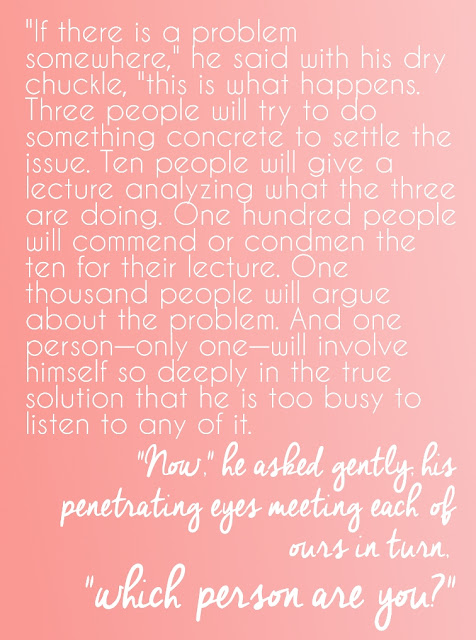After letting it sit on my shelf for several months I finally decided to read Elias Chacour's Blood Brothers over the weekend. Someone gave me a copy without much explanation; the two little boys on the cover lead me to believe it was the story of friendship between a Jewish boy and a Palestinian boy. But there was much more to it.
Elias was born in 1939 to a Palestinian Christian family and was a young boy when the Jewish state of Israel was declared. He vividly recalls Israeli soldiers coming into his village and requesting that everyone leave for a few days for "safety reasons." His family has never had their property restored. As a Christian Elias is able to discuss the Israeli/Palestinian land dispute from a Biblical perspective. In chapter nine he points out that YHWH declares the Promised Land is his in Vayikra 25:23 and that all it's inhabitants are His tenants. He uses his father's fig orchard as a beautiful analogy:
We Gentiles had been "grafted in"
among God's chosen people of faith, just as Father had grafted six different
kinds of fig trees together to make a delightful new tree. Beneath the rough
bark where my hand rested, I knew that the living wood had fused together so
perfectly that, should I cut the tree down, I could never see where one variety
stopped and the other began.
He shares his life's path of study and seminary in Paris that lead him to be the archbishop of Galilee through the Melkite Church. The above quote is from one of the Father's at seminary. Elias was inspired to make his life's work seeking peace between the Jews and Christians of Israel and Palestine, in spite of the new government's failure to do so. He worked at churches and started schools and community centers in the Galilee area (often visiting some of very same places that Yeshua did; finding comfort on the mountains he spoke on). When a new community center opened one of the first things he did was show a film documenting the persecution of the Jewish people during the Holocaust to teach Palestinians to sympathize with their suffering. His vision and hope was remarkable; recognizing that there was no longer Jew nor Greek and that all Believers become Abraham's seed and heirs he arranged peaceful marches of unified Israelis and Palestinians expressing their desire for peace.
Elias' story is a tremendous resource for those wishing to understand more of the conflict in the Promise Land, and to learn what it's like to be a Believer in a land filled with Jews and Muslims. His story is unique and powerful.
Showing posts with label book. Show all posts
Showing posts with label book. Show all posts
Subscribe to:
Comments (Atom)
Upcoming Biblical Holiday Dates 2026
Here's When the Biblical Holidays Happen in 2026
This is when the Biblical holidays happen in 2026. If you're looking for this year's dates for Passover, Unleavened Bread, First Fru...







